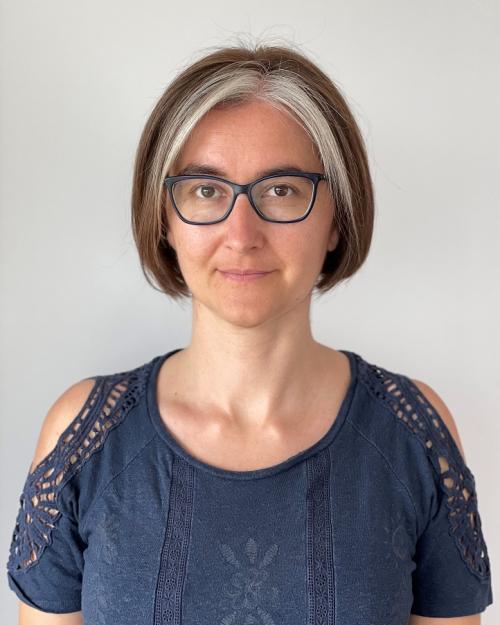Artificial intelligence applications perform amazing feats – winning at chess, writing college admission essays, passing bar exams – but the complexity of these systems is so large they rival that of nature, with all the challenges that come with understanding nature.
An approach to a better understanding of this computer science puzzle is emerging from an unexpected direction: physics. Lenka Zdeborová, professor of physics and computer science at École Polytechnique Fédérale de Lausanne in Switzerland, is using methods from theoretical physics to peer inside AI algorithms and answer fundamental questions about how they work and what they can and cannot do.
Zdeborová will visit campus in March to deliver the spring 2024 Bethe Lecture; “Bridging Physics and Computer Science: Understanding Hard Problems,” is Wednesday, March 13 at 7:30 p.m. in Schwartz Auditorium, Rockefeller Hall.
Zdeborová, who enjoys “erasing boundaries between theoretical physics, mathematics and computer science,” will explore how principles from statistical physics provide insights into challenging computational problems. Through this interdisciplinary lens, she has uncovered phase transitions that delineate the complexity of tasks, distinguishing between those easily tackled by computers and those posing significant challenges.
“Lenka Zdeborová is a leading figure in the scientific community whose work I've long admired, solving problems in physics, computer science, artificial intelligence and many other fields,” said James Sethna, the James Gilbert White Professor of Physical Sciences in the College of Arts and Sciences (A&S). “Zdeborová's focus is on the study of machine learning, where she has been addressing and solving a number of fundamental properties and limitations of the algorithms underlying the amazing performance of ChatGPT and related AI tools.”
Zdeborová’s expertise is in studying the properties of so-called “hard” problems near the transition between solvable and insoluble. She and her colleagues can predict how quickly certain AI systems can learn from examples, and how well or poorly they generalize from these examples. She studies how challenging it is to extract information from noisy data, and where extracting this information is possible or infeasible, determining where an algorithm is better than random guessing.
“The deep networks that underlie much of modern AI are designed by humans, but their complexity with hundreds of billions of parameters is staggering,” said Thorsten Joachims, associate professor of computer science in the Cornell Ann S. Bowers College of Computing and Information Science. “Analyzing their complex behavior with approaches from physics provides exciting new insights and levels of understanding.”
In addition to the public Bethe Lecture, Zdeborová will give a physics colloquium talk, “From Bethe Lattice to Unraveling Complex Systems,” on Monday, March 11 at 4 p.m. in Schwartz Auditorium, Rockefeller Hall.
Zdeborová will also participate in an AI Lunchtime Seminar, “On Generalization and Uncertainty in Learning with Neural Networks,” on Friday, March 15 at noon in 122 Gates Hall, with Zoom available in 700 Clark Hall.
At École Polytechnique Fédérale de Lausanne, Zdeborová leads the Statistical Physics of Computation Laboratory.
Zdeborová received a Ph.D. in physics from University Paris-Sud and from Charles University in Prague in 2008. She spent two years in the Los Alamos National Laboratory as a director’s postdoctoral fellow; then spent 10 years as a researcher at Centre National de la Recherche Scientifique (CNRS) working in the Institute of Theoretical Physics in Saclay, France. She has served as an editorial board member for Journal of Physics A, Physical Review E, Physical Review X, SIMODS, Machine Learning: Science and Technology and Information and Inference.
Her honors include the CNRS bronze medal in 2014; the Philippe Meyer Prize in Theoretical Physics in 2016; the Irène Joliot-Curie prize in 2018; the Gibbs Lectureship of AMS and the Neuron Fund Award in 2021.
The Hans Bethe Lecture Series, established by the Department of Physics and the College of Arts and Sciences, honors Bethe, Cornell professor of physics from 1936 until his death in 2005. Bethe won the 1967 Nobel Prize in physics for his description of the nuclear processes that power the sun.




